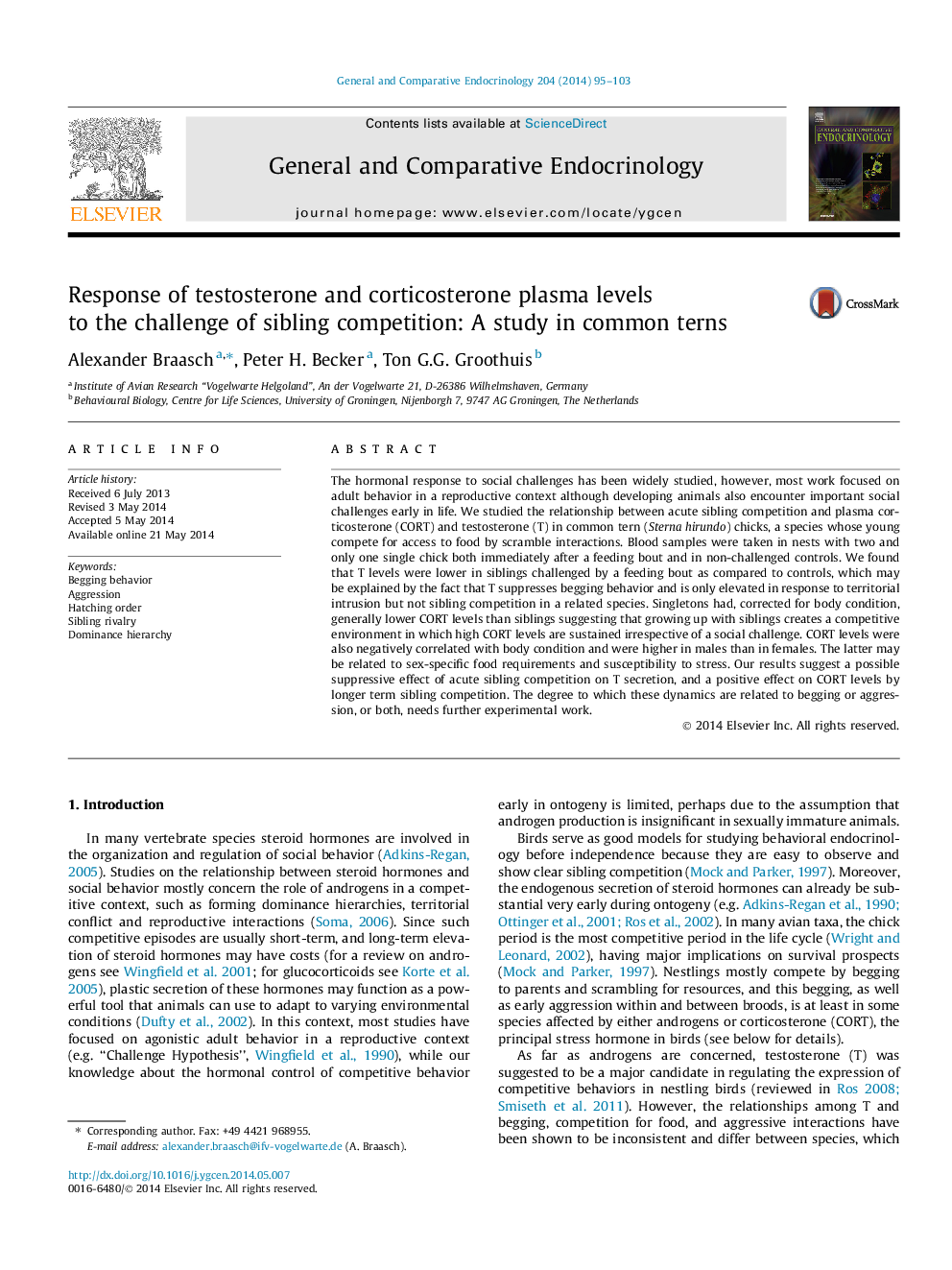| Article ID | Journal | Published Year | Pages | File Type |
|---|---|---|---|---|
| 2800179 | General and Comparative Endocrinology | 2014 | 9 Pages |
•We investigated the response of T and CORT to food competition in common tern chicks.•In siblings T was lower after intense food competition as compared to controls.•CORT was higher in siblings than in singletons, and higher in males than in females.•The hormonal control of begging and aggression may depend on the social context.
The hormonal response to social challenges has been widely studied, however, most work focused on adult behavior in a reproductive context although developing animals also encounter important social challenges early in life. We studied the relationship between acute sibling competition and plasma corticosterone (CORT) and testosterone (T) in common tern (Sterna hirundo) chicks, a species whose young compete for access to food by scramble interactions. Blood samples were taken in nests with two and only one single chick both immediately after a feeding bout and in non-challenged controls. We found that T levels were lower in siblings challenged by a feeding bout as compared to controls, which may be explained by the fact that T suppresses begging behavior and is only elevated in response to territorial intrusion but not sibling competition in a related species. Singletons had, corrected for body condition, generally lower CORT levels than siblings suggesting that growing up with siblings creates a competitive environment in which high CORT levels are sustained irrespective of a social challenge. CORT levels were also negatively correlated with body condition and were higher in males than in females. The latter may be related to sex-specific food requirements and susceptibility to stress. Our results suggest a possible suppressive effect of acute sibling competition on T secretion, and a positive effect on CORT levels by longer term sibling competition. The degree to which these dynamics are related to begging or aggression, or both, needs further experimental work.
